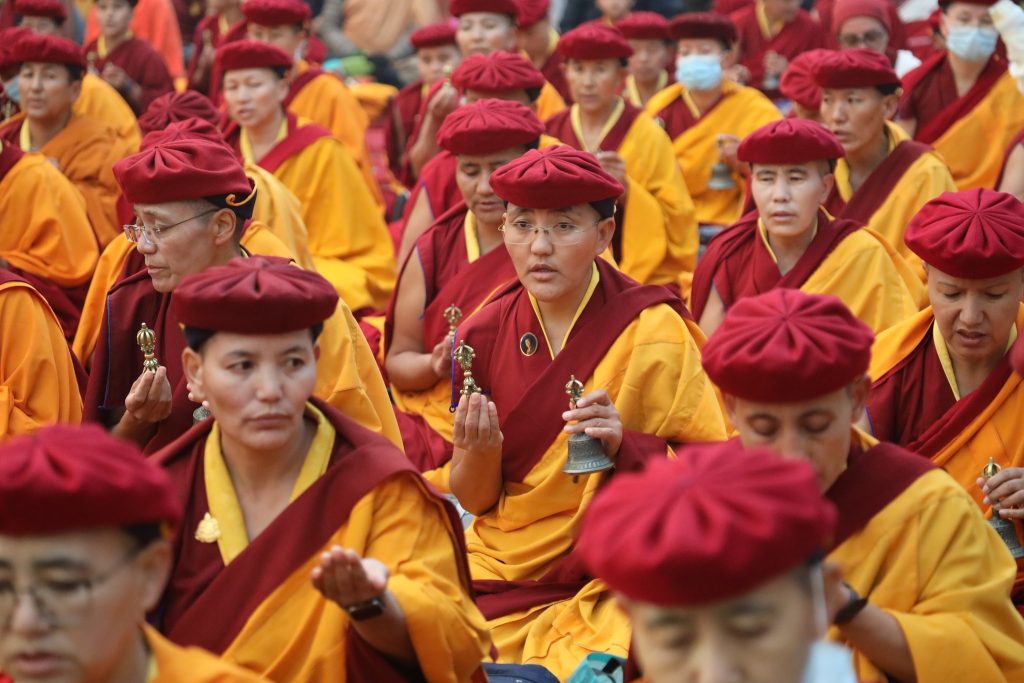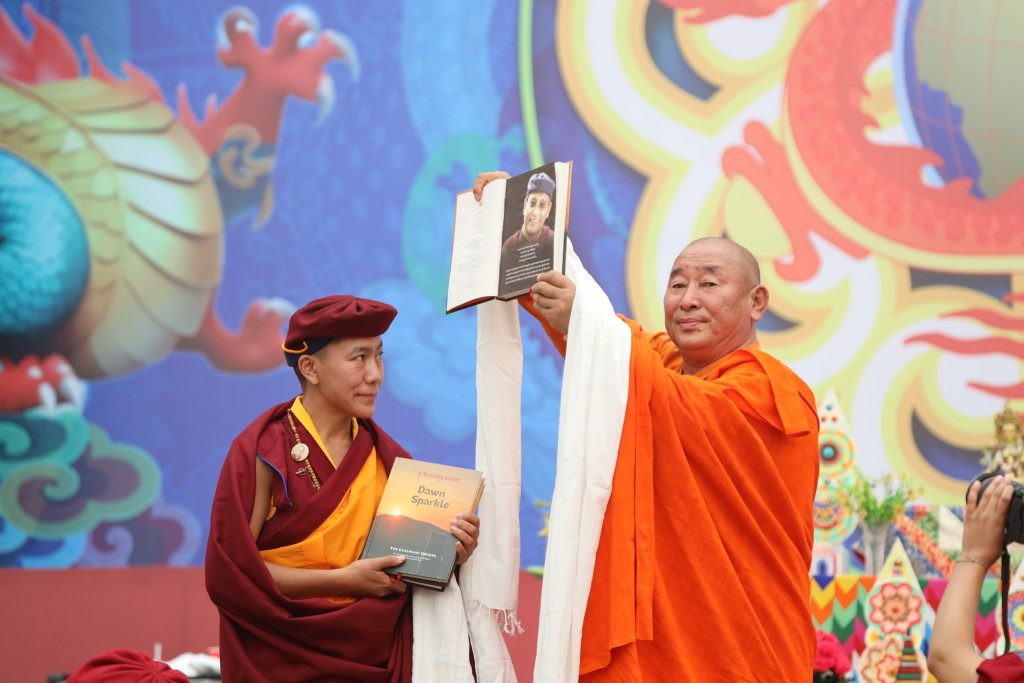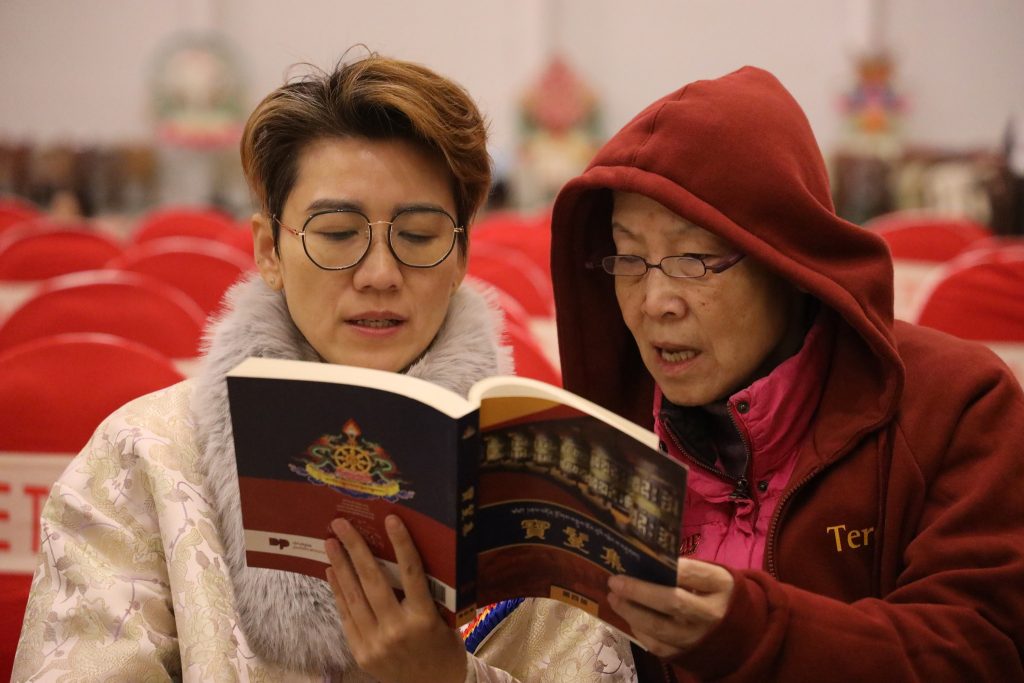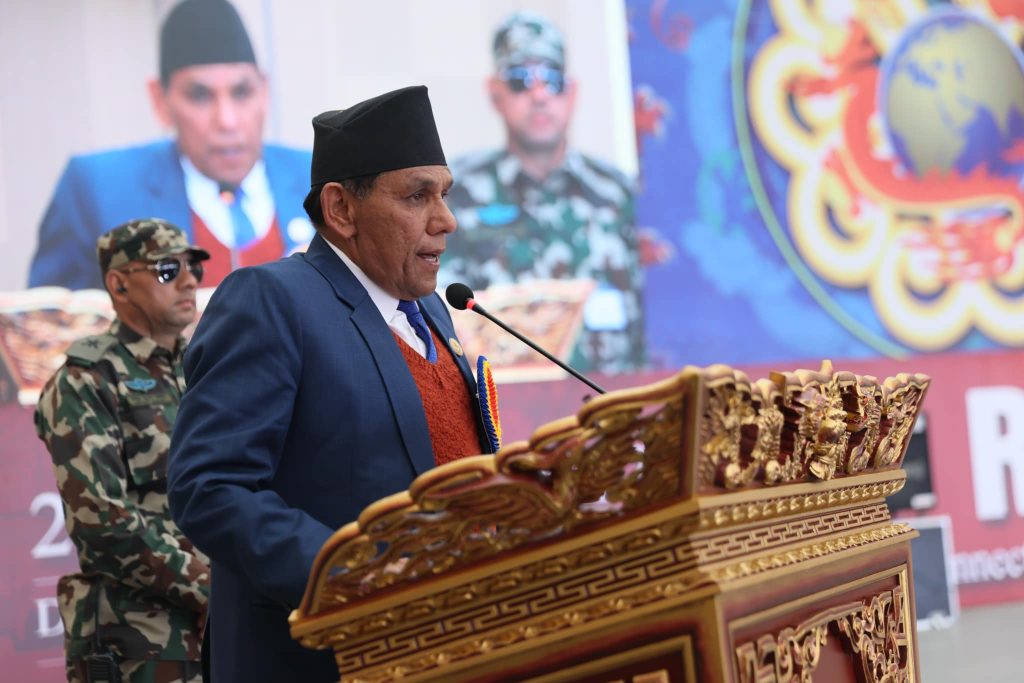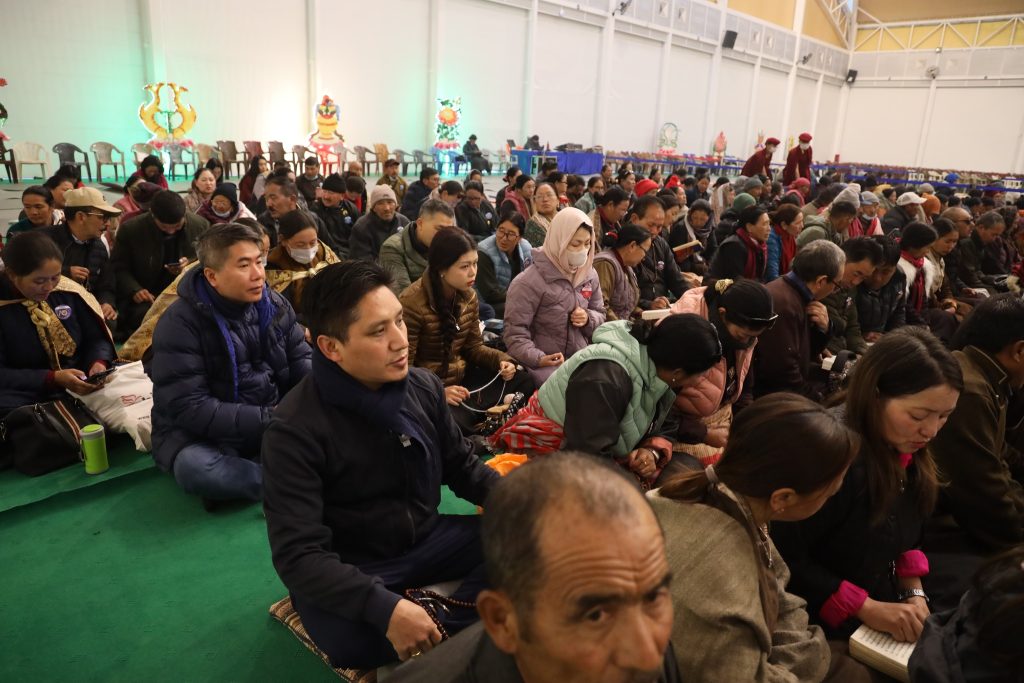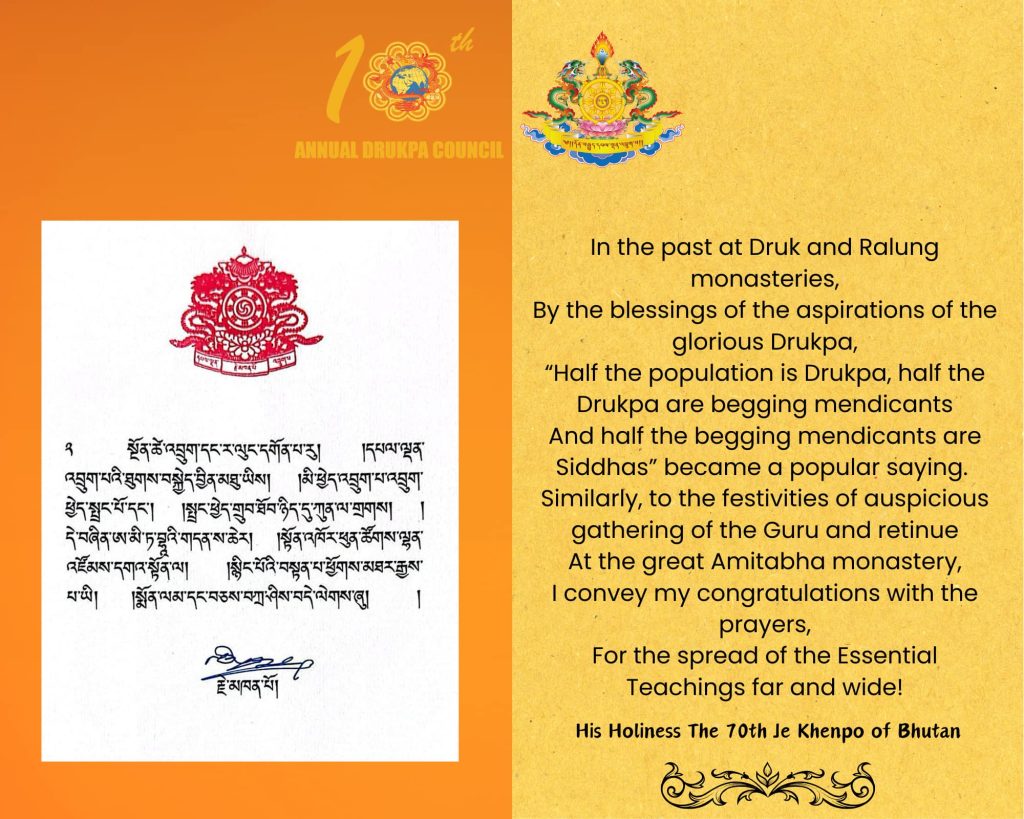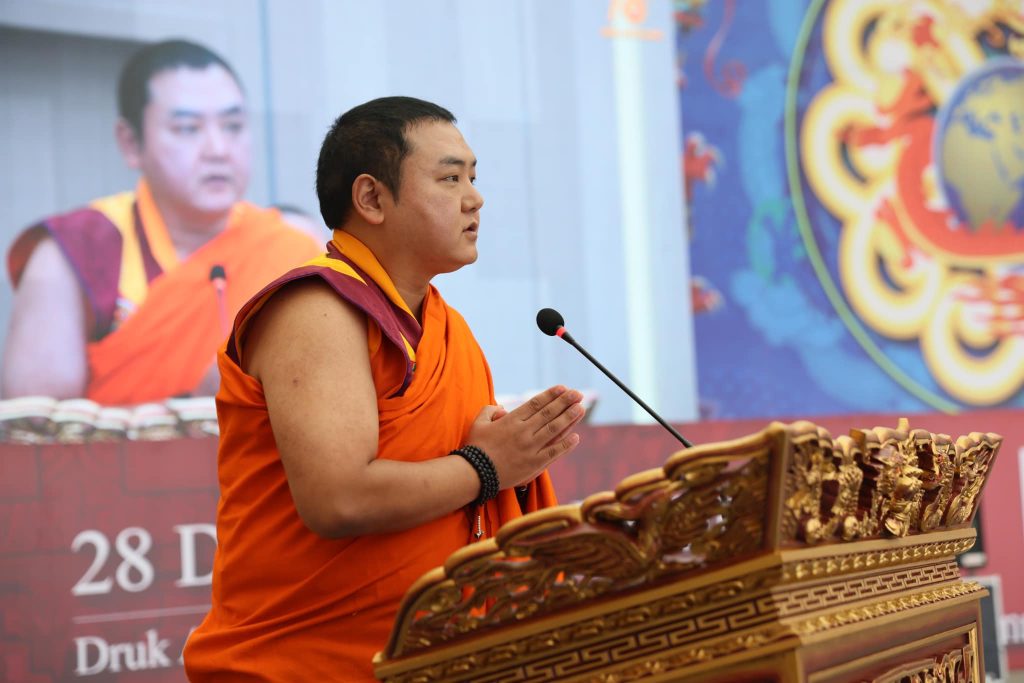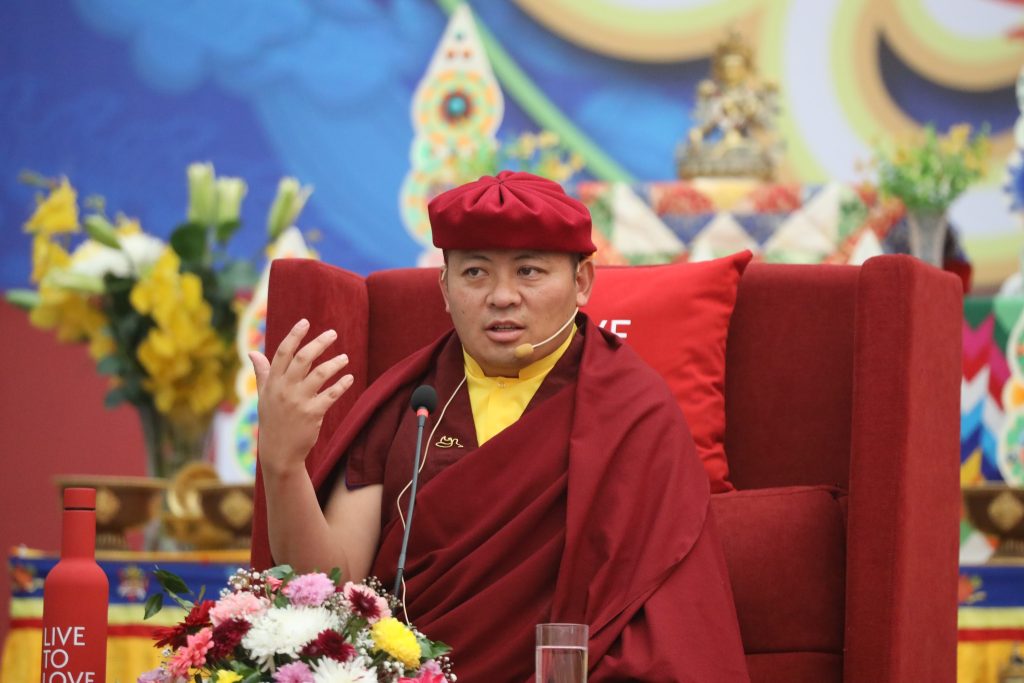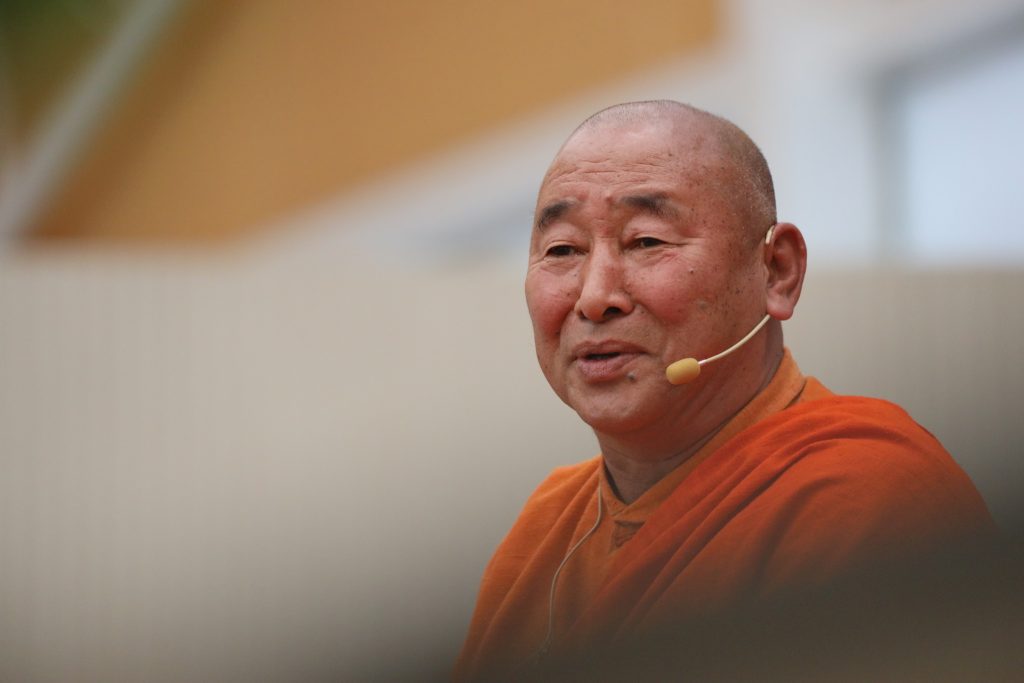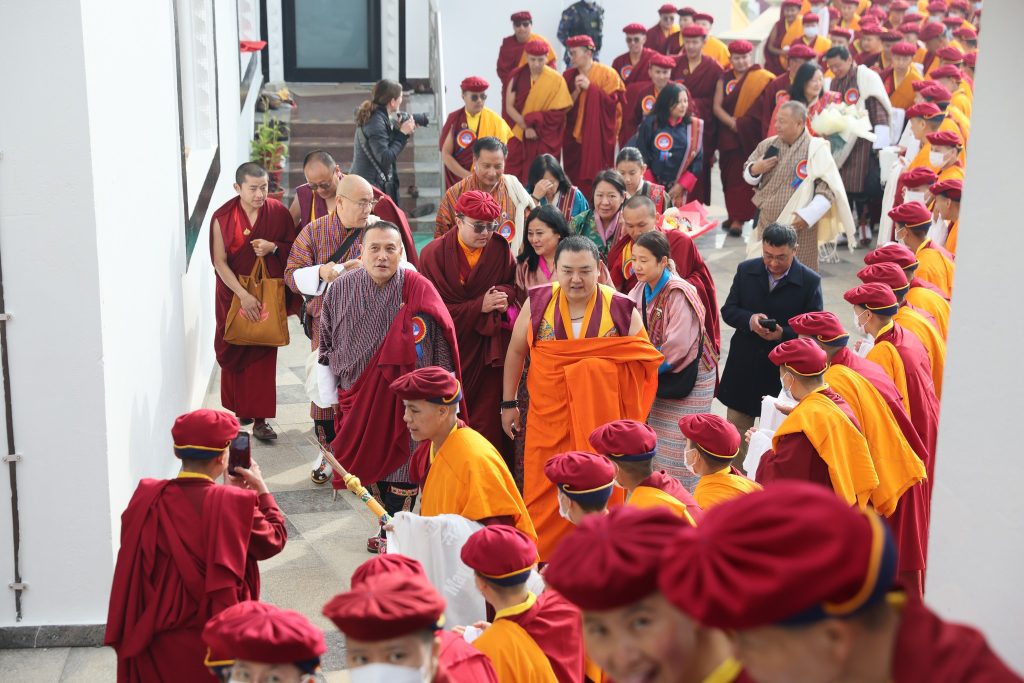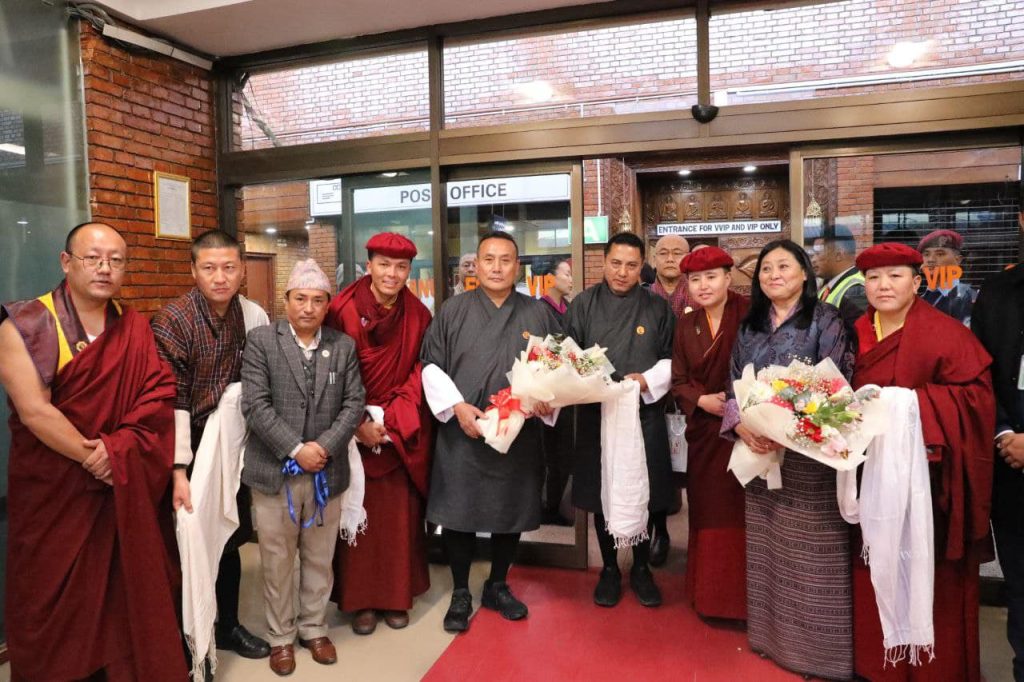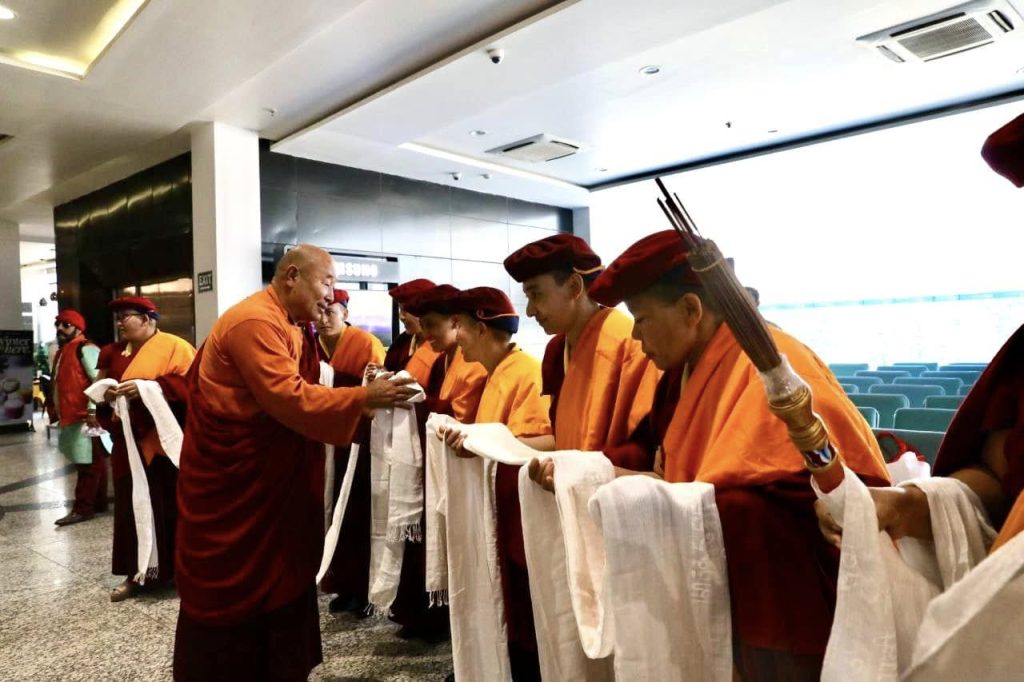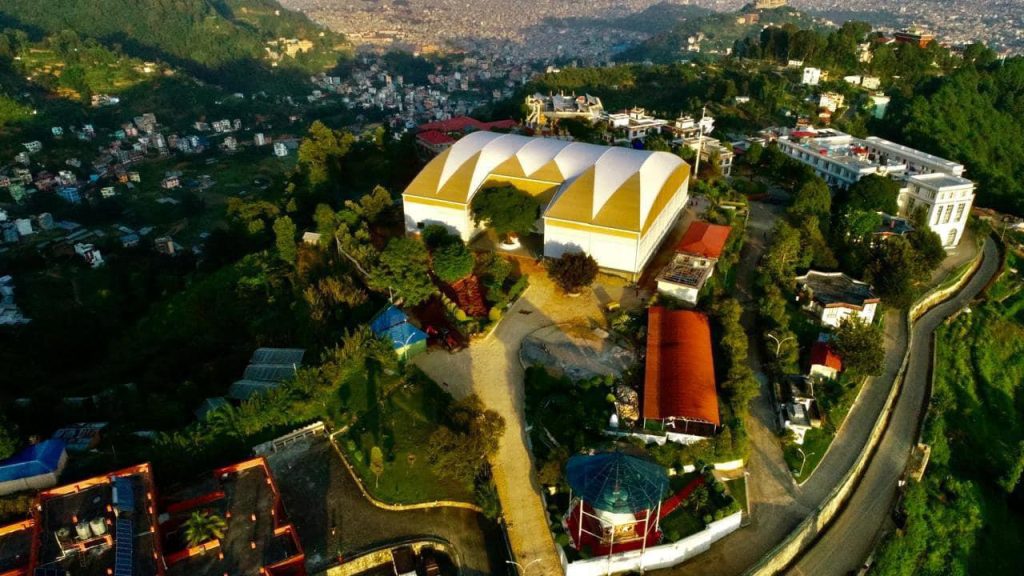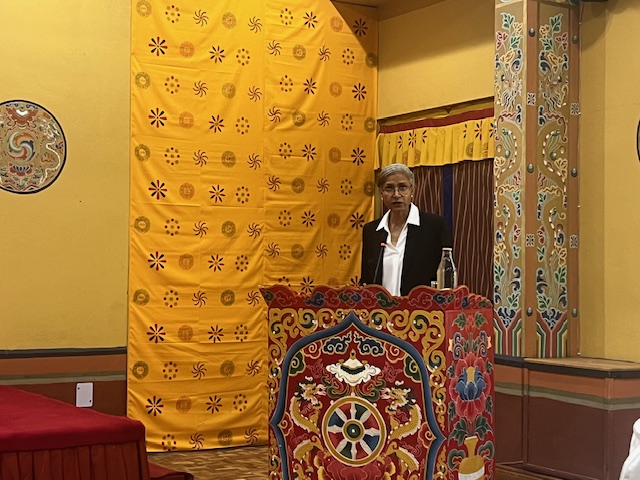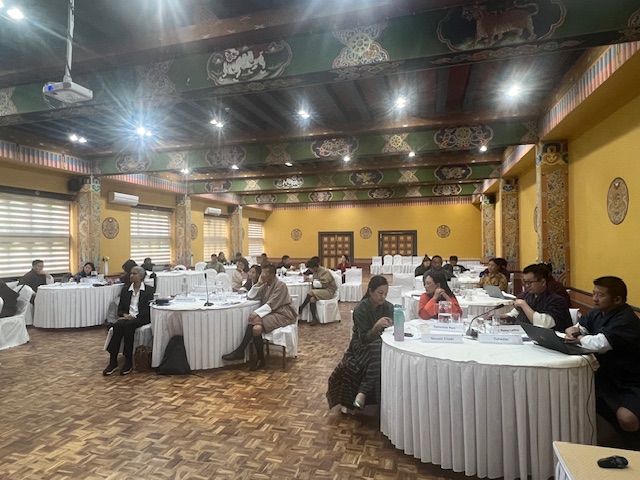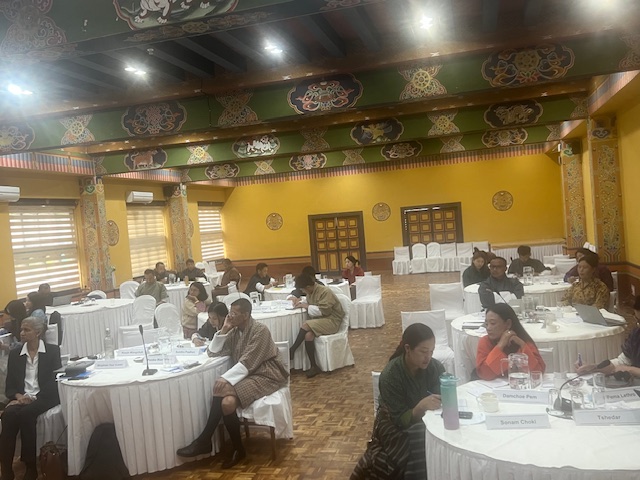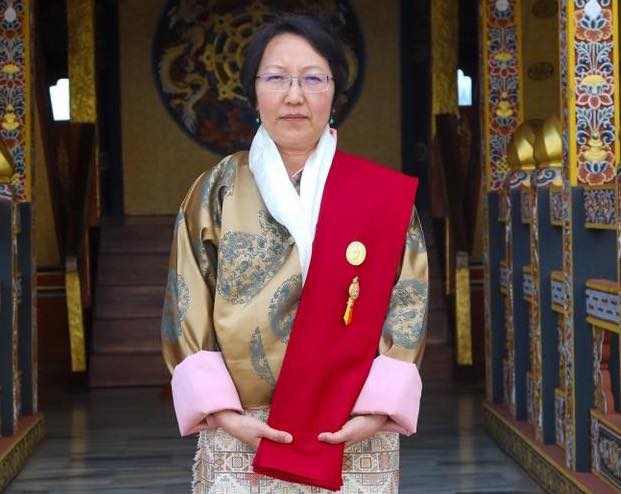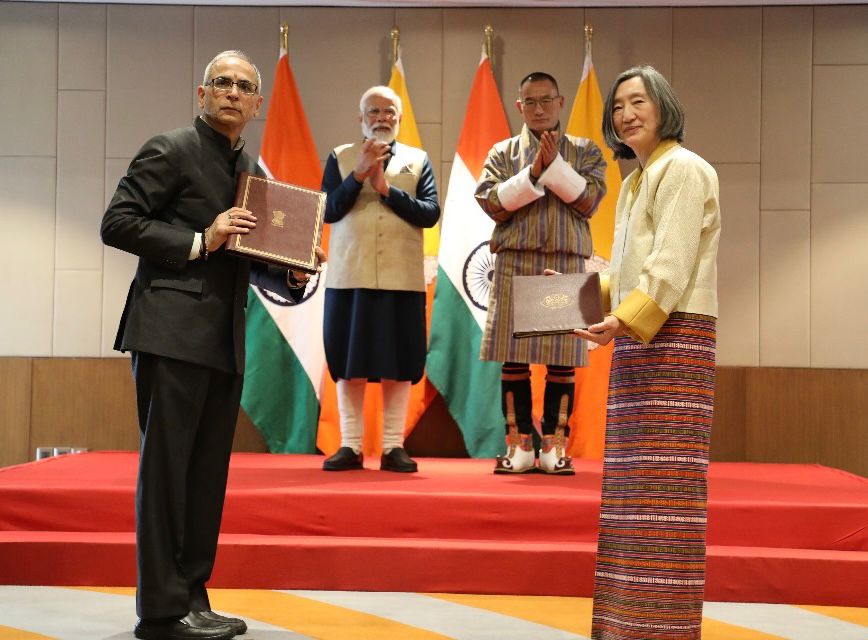Kathmandu, Nepal – The 10th Annual Drukpa Council (ADC) concluded with a remarkable evening of circumambulation around the Swayambunath Stupa on January 1, 2025. Led by His Holiness the 12th Gyalwang Drukpa, along with Gyalwa Dokhampa Rinpoche, Drukpa masters, nuns, monks, and hundreds of devotees, participants walked three times around the stupa, offering 100,000 butter lamps under the night sky.
The event lasted from 9 PM to 11:30 PM and was part of a five-day program held at the reconstructed Naro Hall of the Druk Amitabha Mountain Nunnery, Seto Gumba, which overlooks the Kathmandu valley.

Practicing Dharma with Single-Mindedness
The final day was blessed by His Holiness Gyalwang Drukpa, who delivered a profound teaching to usher in 2025 alongside the Drukpa Sangha from around the world. He emphasized the importance of single-mindedness and devotion in the practice of Dharma.
Gyalwang Drukpa highlighted that cultivating a focused mindset is essential, accompanied by “devotion and faith.” “Practicing Dharma without these qualities is akin to entering a vast supermarket without knowing what you need to buy,” he explained, underscoring the necessity of clarity in one’s spiritual journey.
He illustrated his point with an inspiring anecdote about a yogi who initially recited the mantra of Vajra Kilaya incorrectly. Despite the error, his unwavering focus and immense devotion enabled him to attain a higher state of realization, allowing him to perform miraculous feats, including piercing rocks with a phurpa (sacred spiritual dagger).
In contrast, a more knowledgeable yogi, who recited the mantra correctly but struggled with self-doubt, lost his connection to higher realization and his miraculous abilities. Ultimately, he came to understand that his earlier errors, rooted in steadfast devotion, were the key to regaining his spiritual powers.
“In summary,” Gyalwang Drukpa stated, “no matter how well-educated or knowledgeable one may be, true realization remains unattainable without single-mindedness and firm devotion.”

ADC’s Significant Impact
The Gyalwang Drukpa envisioned the ADC in 2009 as an annual gathering for Drukpa masters to unite in preserving their lineage while serving both Dharma and humanity. The 1,000-year-old Drukpa Lineage, encompassing over 1,000 monasteries and communities across the Himalayan region, is a pillar of Vajrayana Buddhism and Buddhism as a whole.
The 10th ADC, taking place after a six-year hiatus, played a critical role in reconnecting practitioners, scholars, and followers from the Himalayan region and beyond. Notably, the event witnessed active participation from many young masters of the lineage.
“This heralds an even brighter future, characterized by greater harmony and collaboration as we collectively preserve the lineage and the Buddha Dharma,” Gyalwa Dokhampa commented. He underscored that the ADC serves as a vital platform for transmitting teachings, safeguarding ancient wisdom, and ensuring the continuity of spiritual practices, particularly in today’s rapidly modernizing world where traditional knowledge is increasingly at risk.
Kyabje Drukpa Thuksey Rinpoche, another lineage holder, affirmed that the ADC concluded successfully, bolstered by blessings from their root guru and support from numerous rinpoches, sponsors, and volunteers from Nepal, Ladakh, Darjeeling, Sikkim, and Bhutan. Throughout the week, the ADC showcased traditional rituals, art, music, and cultural expressions, all integral to fostering Himalayan Buddhist culture and encouraging cooperation within the community.

Inspiration for Future Generations
The ADC transcends the notion of an annual gathering; it embodies Gyalwang Drukpa’s vision of promoting unity. It also serves as a source of inspiration, particularly for younger generations who actively contribute each year. This year, over 500 volunteers from the Himalayan region, including Bhutan, participated in the ADC.
“They are not only pivotal in their selfless service but also represent our future,” Gyalwa Dokhampa noted. “Their involvement helps cultivate an appreciation for their heritage and instills a strong sense of identity in a world increasingly challenged by identity crises.”
In his closing remarks, His Holiness Gyalwang Drukpa expressed heartfelt gratitude to the ADC organizers and volunteers for their unwavering dedication, noting that he observed the events whenever possible from his room. “It was a deeply moving and blissful moment,” remarked Gyurmay Tsundu, a translator for Gyalwang Drukpa’s teachings. “Being here feels like stepping into the Amitabha Mandala, surrounded by His Holiness, numerous rinpoches, and perhaps countless masters and realized beings.”

Celebrating the New Year To conclude the ADC, Gyalwa Dokhampa, Bhutan’s Home Minister Tshering, Kyabje Drukpa Thuksey Rinpoche, Khamdrak Rinpoche, various trulkus, Drukpa masters, Kungfu nuns, and followers celebrated the new year with Marme Moenlam (the lamp offering prayer) and firecrackers at the sacred site of Kunkhen Pemakarpo and Lord Buddha statues, symbolizing hope and renewal for the coming year.
